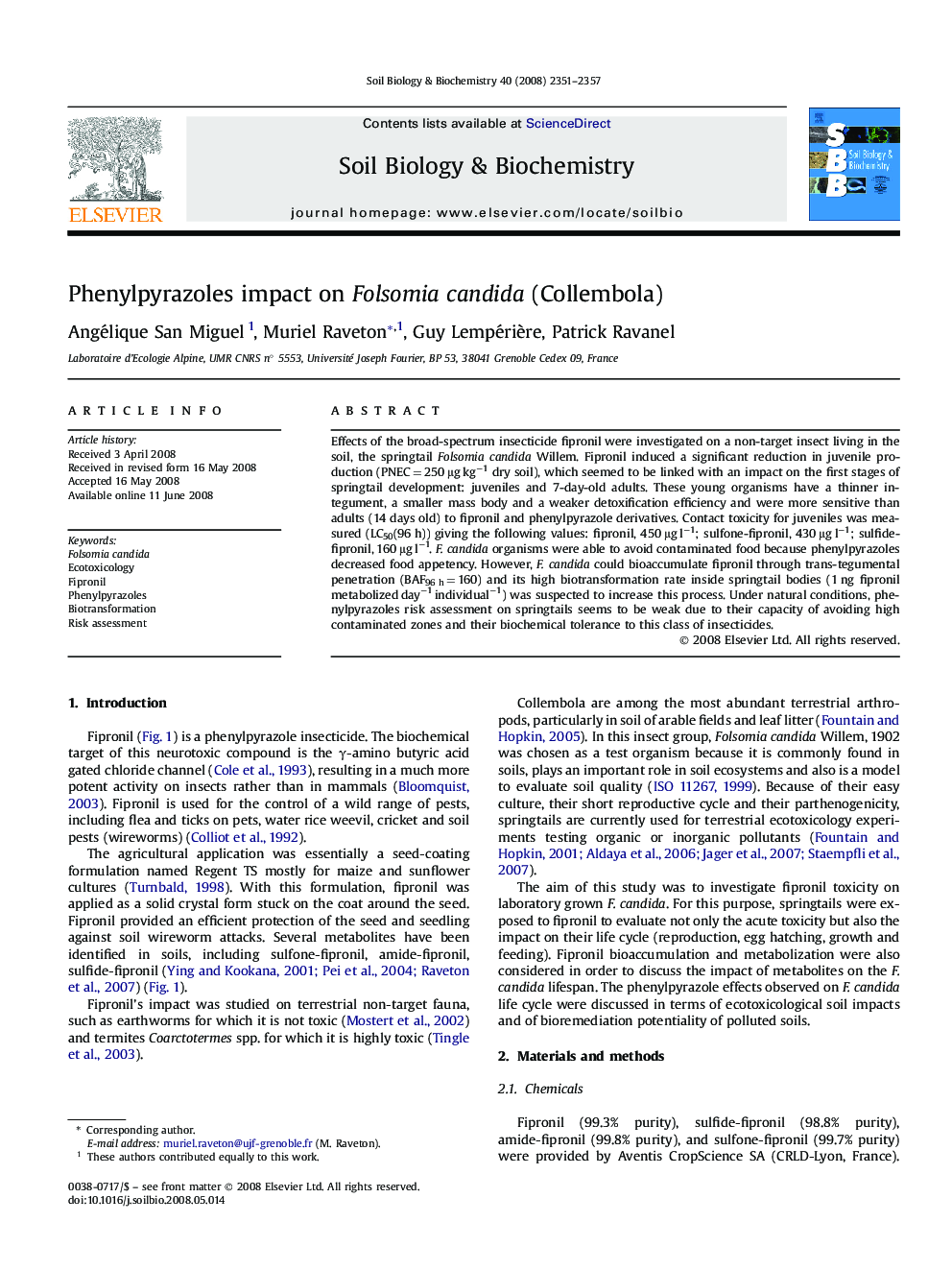| Article ID | Journal | Published Year | Pages | File Type |
|---|---|---|---|---|
| 2026897 | Soil Biology and Biochemistry | 2008 | 7 Pages |
Abstract
Effects of the broad-spectrum insecticide fipronil were investigated on a non-target insect living in the soil, the springtail Folsomia candida Willem. Fipronil induced a significant reduction in juvenile production (PNEC = 250 μg kgâ1 dry soil), which seemed to be linked with an impact on the first stages of springtail development: juveniles and 7-day-old adults. These young organisms have a thinner integument, a smaller mass body and a weaker detoxification efficiency and were more sensitive than adults (14 days old) to fipronil and phenylpyrazole derivatives. Contact toxicity for juveniles was measured (LC50(96 h)) giving the following values: fipronil, 450 μg lâ1; sulfone-fipronil, 430 μg lâ1; sulfide-fipronil, 160 μg lâ1. F. candida organisms were able to avoid contaminated food because phenylpyrazoles decreased food appetency. However, F. candida could bioaccumulate fipronil through trans-tegumental penetration (BAF96 h = 160) and its high biotransformation rate inside springtail bodies (1 ng fipronil metabolized dayâ1 individualâ1) was suspected to increase this process. Under natural conditions, phenylpyrazoles risk assessment on springtails seems to be weak due to their capacity of avoiding high contaminated zones and their biochemical tolerance to this class of insecticides.
Related Topics
Life Sciences
Agricultural and Biological Sciences
Soil Science
Authors
Angélique San Miguel, Muriel Raveton, Guy Lempérière, Patrick Ravanel,
